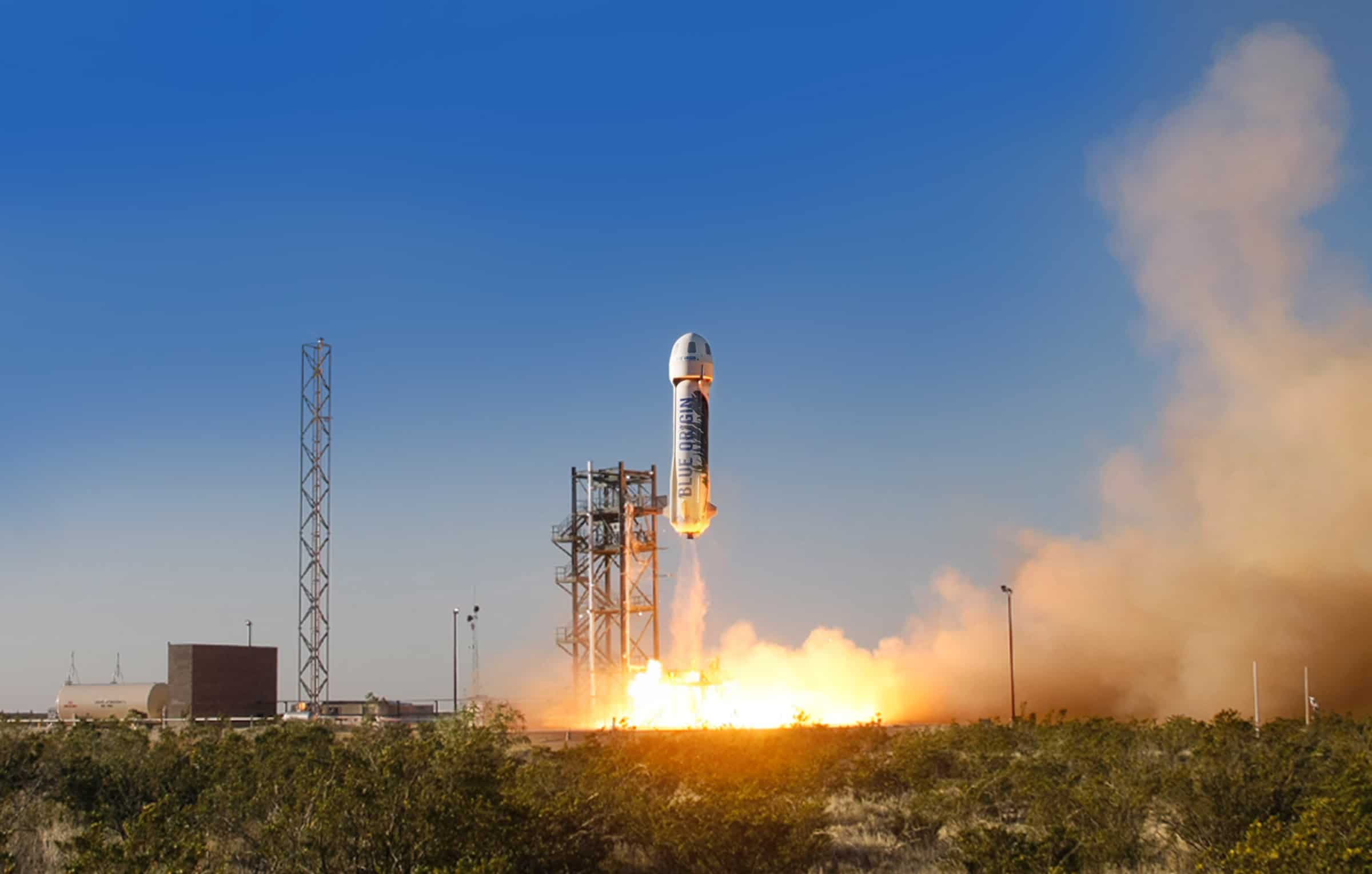
Jeff Bezos and Elon Musk are billionaires racing to make recyclable rockets. Musk has a big head start, but Bezos’ company is looking for ways to one-up SpaceX.
If you thought those SpaceX drone ship landing pads were cool, Blue Origin says you’re going to love its rocket landing technique. It involves a seafaring ship that’ll catch a returning booster without stopping.
Blue Origin, owned by Amazon founder and current billionaire king Jeff Bezos, revealed Sunday that it hopes to gain a competitive advantage over Elon Musk and his SpaceX Falcon 9 rockets by keeping some motion in the ocean.
During the webcast of Sunday’s eighth test launch of Blue Origin’s New Shepard rocket, host Ariane Cornell filled some time during a countdown hold by talking about the space company’s upcoming New Glenn rocket. New Glenn is a larger launch system that will be able to send satellites and other payloads to orbit, making it a more direct competitor for SpaceX. The Shepard rocket is designed to take adventurous tourists on suborbital flights to the edge of space.
Like the Falcon 9, New Glenn will be able to launch from Cape Canaveral, Florida, and then return to land on a ship at sea, but the Blue Origin ship won’t be parked at a designated landing spot in the Atlantic. Instead it’ll be in motion, plying the waters, even as New Glenn comes in for a landing.
“It’s actually more stable than a barge out there, which means that we can actually launch and land in higher sea states,” Cornell explained, throwing some not-so-subtle shade at SpaceX. “It means we can have a more reliable schedule for our customers.” Cornell works for Blue Origin in business development and strategy.
SpaceX declined to comment.
Rough waters have forced SpaceX to abandon plans to recover one of its Falcon 9 rockets as recently as March. To be fair, though, the waters were very treacherous that day with swells of nearly 20 feet (6 meters).
Time will tell what, if any, type of competitive advantage Blue Origin can gain over Musk and SpaceX, which has a significant head start when it comes to launching and then landing orbital class rockets carrying big payloads.
New Glenn isn’t expected to go into service until the 2020s. By then it’s possible that SpaceX will have conducted dozens more sea landings (the company has already done 13 successfully) and also figured out how to catch a rocket with a moving ship.

